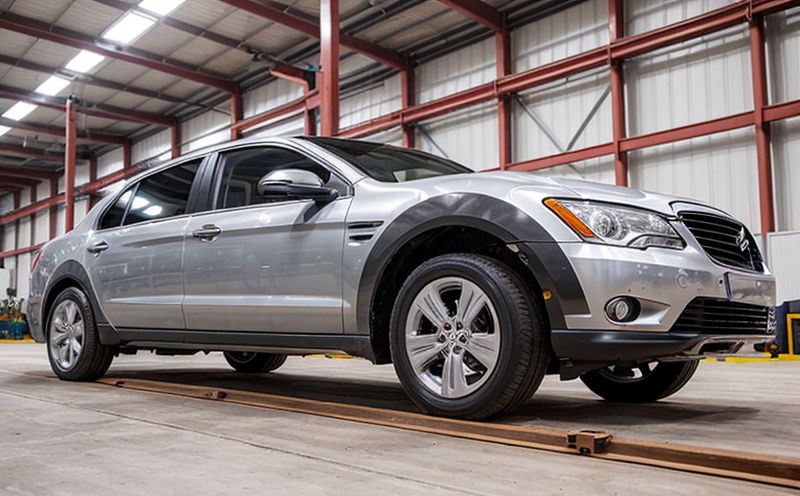EN 16085 Mechanical Resistance of Coatings in Manufacturing
The European Standard EN 16085 specifies the procedure and requirements for determining the mechanical resistance to impact, abrasion, and flexing of protective coatings applied to various industrial components. This standard is crucial for ensuring that coatings maintain their integrity under real-world conditions, thereby extending the lifetime of machinery and structures.
This testing method addresses the need for robust performance in environments where wear and tear are significant factors. It applies particularly well to sectors such as automotive manufacturing, aerospace engineering, and construction, where components exposed to mechanical stress require protective coatings that can withstand harsh conditions without failure.
The standard defines several test methods tailored to different types of mechanical resistance:
- Impact Resistance Test: Evaluates the ability of a coating to resist localized impacts from small projectiles or objects.
- Abrasion Resistance Test: Measures how well a coating resists wear caused by friction with abrasive materials.
- Flexing Resistance Test: Assesses the durability of coatings under repeated bending stress, which is critical for components subjected to cyclic loading.
Testing according to EN 16085 involves meticulous preparation and execution. Specimens are carefully prepared by applying a specified type and thickness of coating over a substrate, following precise conditions detailed in the standard. The test specimens undergo rigorous mechanical stress using specialized equipment designed to replicate real-world scenarios.
The results provide quantitative data that can be used to compare different coatings or to monitor changes in protective properties over time. Quality managers and R&D engineers rely on these data points for optimizing coating formulations, ensuring compliance with regulatory standards, and enhancing product quality.
Compliance officers also find this standard invaluable for ensuring that their products meet international safety and performance regulations. By adhering to EN 16085, manufacturers can demonstrate a commitment to excellence in manufacturing processes and materials selection, fostering trust among customers and regulatory bodies alike.
Benefits
The implementation of EN 16085 brings numerous benefits to industrial manufacturing and processing facilities. One key benefit is enhanced product reliability and longevity. By ensuring that coatings can withstand mechanical stress, manufacturers reduce the risk of premature failures, which can lead to costly downtime and maintenance.
Additionally, this standard supports sustainable practices by promoting the use of durable materials that extend the service life of components without compromising safety or performance. This not only reduces waste but also contributes to lower lifecycle costs for industries relying on these components.
The results from EN 16085 testing can be used in various ways:
- To optimize coating formulations and improve product quality.
- To ensure compliance with international standards, thereby opening up markets to global customers.
- To enhance the reputation of manufacturers by showcasing a commitment to rigorous quality control.
For procurement teams, adherence to EN 16085 helps in selecting suppliers who meet stringent quality criteria. This ensures that only high-quality materials are used in manufacturing processes, leading to superior end products.
International Acceptance and Recognition
- The standard is recognized by numerous international bodies including the International Organization for Standardization (ISO), European Committee for Standardization (CEN), and American Society for Testing and Materials (ASTM).
- Many countries have adopted EN 16085 as part of their national standards, ensuring its widespread use across global markets.
The acceptance of this standard is further enhanced by the detailed methodology it provides, which ensures consistency and reliability in testing results. This uniformity fosters trust among stakeholders and facilitates smoother international trade.
Environmental and Sustainability Contributions
- The mechanical resistance tests conducted under EN 16085 contribute to reducing waste by promoting the use of durable coatings that last longer, thus requiring fewer replacements over time.
- This reduces both material consumption and associated environmental impacts. By optimizing coating performance, manufacturers can also decrease energy usage during production processes.
Moreover, the standard supports sustainable practices by encouraging the development of eco-friendly coatings that are not only mechanically resistant but also have lower environmental footprints. This aligns with broader industry efforts to adopt more sustainable manufacturing techniques and materials.





